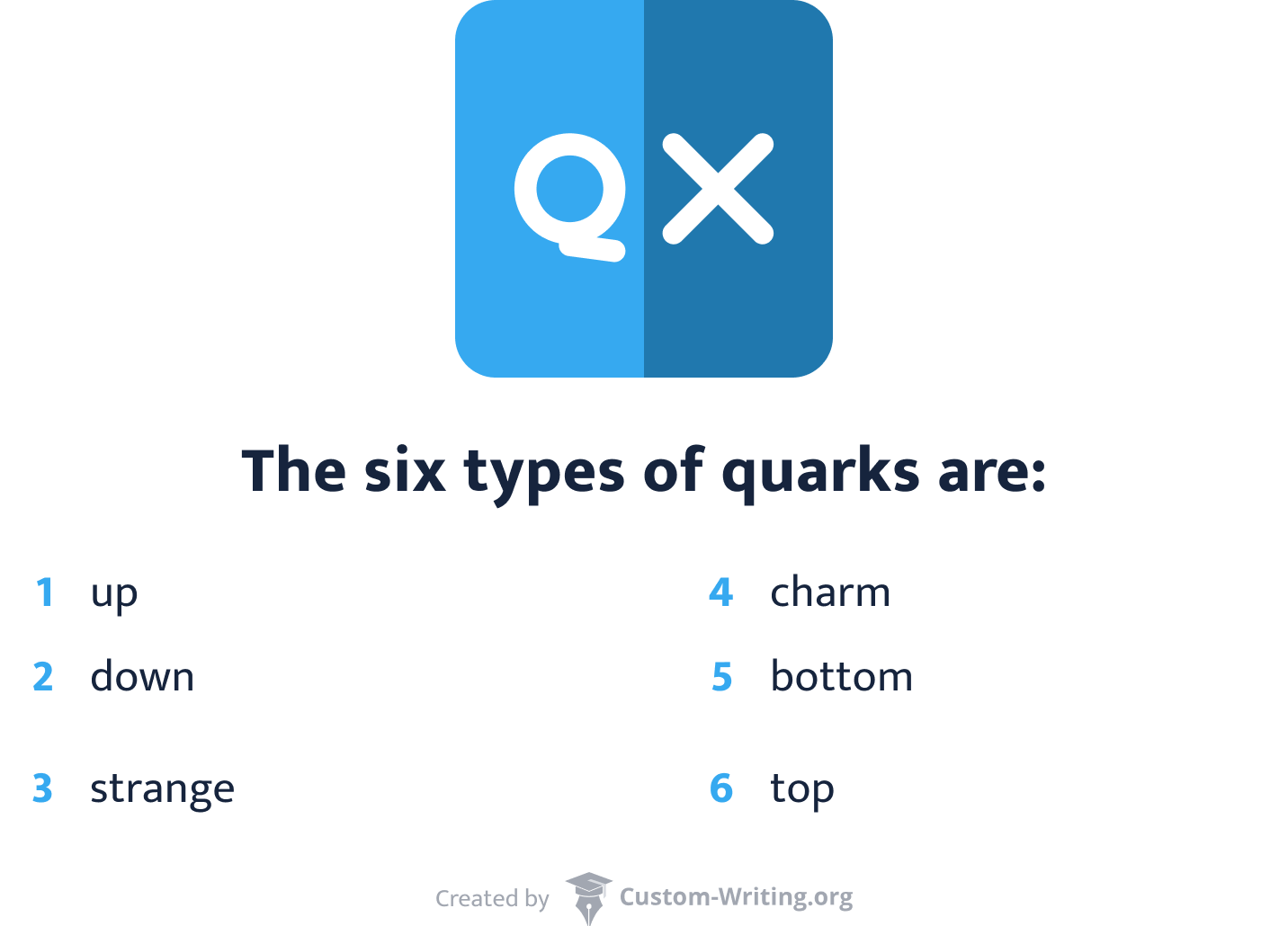Physics research questions explore the observable and invisible aspects of nature. An essential part of this is examining the structure and interactions of matter. For example, plates break when you drop them. Glasses help you see better. Have you ever wondered why? Physics has the answer.
Here, Custom-writing.org experts have compiled the most interesting physics topics to research and write about in your essay. This collection contains topics on classical and modern physics, as well as titles about astrophysics, mechanics, electromagnetism, and sound waves. These writing ideas can be used by undergraduates, graduate students, and researchers working on their theses. In addition to physics research topics, we will overview the main branches of physics to provide a broader understanding of scholarly research in the field.
🔝 Top 10 Physics Research Topics
- Modern vs. classical physics
- Gravity method in geophysics
- Why can’t the multiverse be real?
- Nuclear physics vs. quantum physics
- Photonics’ relationship to other fields
- Is electromagnetism the strongest force?
- What would extra dimensions look like?
- The importance of kinematics in real life
- Is string theory a generalization of quantum field theory?
- The difference between liquid pressure and air pressure
✅ Branches of Physics
Now: before writing about physics you should know about its main branches. These are classical and modern. Let’s take a closer look:
- Classical physics encompasses all research done before the 20th century. Its subcategories include:
- Mechanics, which is concerned with motion. Two of its essential aspects are kinematics and dynamics.
- Optics helps us understand the properties of light.
- Another branch investigates waves and sound. It studies the way they travel and how they are produced.
- Thermodynamics deals with heat and motion. One of its key concepts is entropy.
- Electromagnetism studies the interactions between charged particles. It also deals with the forces and fields that surround them.
- Finally, physical geographers observe our Earth’s physical features. These include environmental processes and patterns.
- All advances in physics after the turn of the 20th century are part of modern physics. It includes:
- Atomic physics, which examines the structure and behavior of atoms.
- Nuclear physics investigates the nucleus of atoms. This branch often deals with radioactivity.
- Scientists working in quantum physics concentrate on the erratic behavior of waves and particles.
- Relativity can be general and special. Special relativity deals with time and motion. General relativity describes gravity as an alteration of spacetime caused by massive objects.
- Cosmology and astrophysics explore the properties of celestial bodies. Cosmologists strive to comprehend the universe on a larger scale.
- Mesoscopic physics covers the scale between macroscopic and microscopic.

You can talk about any of these branches in your essay. Keep in mind that this division is a basic outline. Strictly speaking, everything that happens around you is physics! Now, we’re all set to move on to our physics paper topics.
⭐ Top 10 Physics Topics 2026
- Biophysics vs. biochemistry
- The future of nano-physics
- The use of perturbation theory
- Possible cause of baryogenesis
- Solid-state vs. condensed matter physics
- Why is the quark model introduced?
- The importance of plasma in physics
- Statistical mechanics vs. statistical physics
- Ways to calculate electronic structure
- Difference between matter and dark matter
🧲 Classical Physics Topics to Write About
Classical physics deals with energy, force, and motion. You encounter this kind of physics in everyday life. Below, we’ve compiled a list with compelling prompts you’ll recognize from your physics class:
⚙️ Mechanics Essay Topics
- What does Newton’s laws of motion state?
- How do ships stay afloat?
- Equipartition: for what systems does it not hold?
- What does Bernoulli’s principle state about fluids?
- Surface tension: what causes it?
- How does buoyancy work?
- An overview of the molecular origins of viscosity.
- The equipartition theorem: how does it connect a system’s temperature to its energies?
- The benefits of the continuum assumption.
- Contrast the different types of forces.
- Explain the term “momentum.”
- Kinematics: describing the relationships of objects in constrained motion.
- What causes objects to oscillate?
🌡️ Thermodynamics Paper Topics
- Thermodynamics as a kinetic theory of matter.
- What is entropy?
- Describe the three types of thermodynamic processes.
- The Carnot heat engine as part of a thermodynamic cycle.

- Perpetual motion: is it possible or not?
- Investigate fire in terms of chemistry and thermodynamics.
⚡ Electromagnetism Topics to Research
- Examine the connection between electric potential and electric field.
- What makes an excellent conduit?
- How does a dielectric impact a capacitor?
- Contrast current, resistance, and power.
- How do magnetic fields relate to electricity?
- Explain inductance. What causes it?
- How do induction stoves work?
🔊 Essay Topics on Sounds & Waves
- Sound waves: how do they travel?
- Describe the two types of mechanical waves.
- What are electromagnetic waves used for?
- The difference between interference and diffraction.
- Music and vibrations: the properties of sound.
👓 Optics Topics to Write About
- How does reflection work?
- What happens when an object absorbs light?
- Why does light break into a rainbow?
- Lasers: what do we use them for?
- What causes Aurora Borealis?
- Photography: what happens when you change the aperture?
- Explain what influences the colors of sunsets.
- Fata Morgana mirages: where do they originate from?
- What is the Novaya Zemlya effect?
☢️ Modern Physics Topics for a Paper
The world of modern physics shifts away from its more tangible origins. It deals with atoms and even smaller particles. Nuclear, atomic, and quantum physics belong to this category. One of the central problems of modern physics is redefining the concept of gravity.
- Relativity: a discovery that turned our understanding of physics upside down.
- An overview of 20th century physics.
- The ultraviolet catastrophe and how it was solved.
- What happens to the energy entering an ideal blackbody?
- The photoelectric effect: creating current with light.
- Why did the classical lightwave model become outdated?
- How do night vision devices work?
- The production of x-rays.
- Explain why the charge of electrons is quantized.
- How does the kinetic energy of an electron relate to the light’s frequency and intensity?
- Describe the photon model of the Compton Scattering.
- How do you identify an element using its line spectra?
- Cold Fusion: how likely is it?
- Explain the Pauli Exclusion Principle.
- Electron shells and atomic orbitals: properties of electrons.
- What causes peaks in the x-ray spectrum?
- How do you calculate radioactive decay?
- Carbon dating: how accurate is it?
- The discovery of radioactivity.
- What holds electronic nuclei together?
- Nuclear Fusion: will it ever be possible?
- Describe the types of elemental transmutation.
- Applications of nuclear fission.
- Virtual particles: how do they come into existence?

- Nucleosynthesis: creating atomic nuclei.
- How do you dope a semiconductor using ion implantation?
- What are the magic numbers?
- Superheavy primordial elements: the history of unbihexium.
- Predictions surrounding the island of stability.
- How does a computer tomography work?
🔋 Physics Project Topics for a Science Fair
What’s the most fun part of every natural science? If you said “experiments,” you guessed it! Everybody can enjoy creating rainbows or exploring the effects of magnets. Your next physics project will be as fascinating as you want it to be with these exciting ideas!
- Build a kaleidoscope and learn how it works.
- Investigate the centripetal force with the help of gelatin and marbles.
- Make a potato battery.
- Construct an elevator system.
- Prove Newton’s laws of motion by placing objects of different weights in a moving elevator.
- Learn how a telescope works. Then build one from scratch.
- Levitate small objects using ultrasound.
- Measure how fast a body in free fall accelerates.
- Find out what causes a capacitor to charge and discharge over time.
- Measure how light intensity changes through several polarizing filters.
- Observe how sound waves change under altered atmospheric conditions.
- Find out how a superheated object is affected by its container.
- Determine the mathematics behind a piece of classical music.
- Replicate an oil spill and search for the best way to clean it up.
- What makes a circular toy easy to spin? Experiment by spinning hula hoops of different sizes.
- Make DNA visible. What happens if you use different sources of plant-based DNA?
- Charge your phone with a handmade solar cell.
- Find out what properties an object needs to stay afloat.
- Create music by rubbing your finger against the rim of a glass. Experiment with several glasses filled with different amounts of water.
- Compare the free-fall speed of a Lego figure using various parachutes.
- Experiment with BEC to understand quantum mechanics.
- Make a windmill and describe how it works.
- Build an automatic light circuit using a laser.
- How do concave and convex mirrors affect your reflection?
- Investigate how pressure and temperature influence the air volume.
- Determine the conductivity of different fluids.
- Learn about the evolution of the universe by measuring electromagnetic radiation.
- Capture charged particles in an ion trap.
- Build a rocket car using a balloon.
- Experiment with pendulums and double pendulums. How do they work?
🔭 Astrophysics Topics for a Research Paper
Astrophysicists, astronomers, and cosmologists observe what happens in space. Astronomy examines celestial bodies, while astrophysics describes their mechanics. At the same time, cosmology attempts to comprehend the universe as a whole.
- Explain when a celestial body is called a planet.
- Dark energy and dark matter: how do they affect the expansion of the universe?
- The cosmic microwave background: investigating the birth of the universe.
- What are the possible explanations for the expansion of the universe?
- Evidence for the existence of dark matter.
- The discovery of gravitational waves: consequences and implications.
- Explore the history of LIGO.
- How did scientists observe a black hole?
- The origins of light.
- Compare the types of stars.
- Radioactivity in space: what is it made of?
- What do we know about stellar evolution?
- Rotations of the Milky Way.
- Write an overview of recent developments in astrophysics.
- Investigate the origin of moons.
- How do we choose names for constellations?
- What are black holes?
- How does radiative transfer work in space?
- What does our solar system consist of?
- Describe the properties of a star vs. a moon.

- What makes binary stars special?
- Gamma-ray bursts: how much energy do they produce?
- What causes supernovae?
- Compare the types of galaxies.
- Neutron stars and pulsars: how do they differ?
- The connection between stars and their colors.
- What are quasars?
- Curved space: is there enough evidence to support the theory?
- What produces x-rays in space?
- Exoplanets: what do we know about them?
🌎 Physical Geography Topics to Write About
Physical geographers explore the beauty of our Earth. Their physical knowledge helps them explain how nature works. What causes climate change? Where do our seasons come from? What happens in the ocean? These are the questions physical geographers seek to answer.
- What creates rainbows?
- How do glaciers form?
- The geographical properties of capes.
- What causes landslides?
- An overview of the types of erosion.
- What makes Oceania’s flora unique?
- Reefs: why are they important?
- Why is there a desert in the middle of Siberia?
- The geography of the Namibian desert.
- Explain the water cycle.
- How do you measure the length of a river?
- The Gulf Stream and its influence on the European climate.
- Why is the sky blue?
- What creates waves?
- How do marshes form?
- Investigate the causes of riptides.
- The Three Gorges Dam: how was it built?
- Explain the phenomenon of Green Sahara.
- The consequences of freshwater pollution.
- What are the properties of coastal plains?
- Why is the Atacama Desert the driest place on Earth?
- How does a high altitude affect vegetation?
- Atmospheric changes over the past 100 years.
- Predicting earthquakes: a comparison of different methods.
- What causes avalanches?
- Seasons: where do they come from?
- The Baltic and the Northern Seas meeting phenomenon.
- The geographical properties of the Altai Mountains.
- How do the steppes form?
- Why are some water bodies saltier than others?
🤔 Theoretical Physics Topics to Research
Math fans, this section is for you. Theoretical physics is all about equations. Research in this area goes into the development of mathematical and computer models. Plus, theoretical physicists try to construct theories for phenomena that currently can’t be explained experimentally.
- What does the Feynman diagram describe?
- How is QFT used to model quasiparticles?
- String theory: is it a theory of everything?
- The paradoxical effects of time travel.
- Monstrous moonshine: how does it connect to string theory?
- Mirror symmetry and Calabi-Yau manifolds: how are they used in physics?
- Understanding the relationship between gravity and BF theories.
- Compare the types of Gauge theories.

- Applications of TQFT in condensed matter physics.
- Examine the properties of fields with arbitrary spin.
- How do quarks and gluons interact with each other?
- What predictions does quantum field theory make for curved spacetime?
- How do technicolor theories explain electroweak gauge symmetry breaking?
- Quantum gravity: a comparison of approaches.
- How does LQG address the structure of space?
- An introduction into the motivation behind the eigenstate thermalization hypothesis.
- What does the M-theory state?
- What does the Ising model say about ferromagnetism?
- Compare the thermodynamic Debye model with the Einstein model.
- How does the kinetic theory describe the macroscopic properties of gases?
- Understanding the behavior of waves and particles: scattering theory.
- What was the luminiferous aether assumption needed for?
- The Standard Model of particles: why is it not a full theory of fundamental interactions?
- Investigate supersymmetry.
- Physical cosmology: measuring the universe.
- Describe the black hole thermodynamics.
- Pancomputationalism: what is it about?
- Skepticism concerning the E8 theory.
- Explain the conservation of angular momentum.
- What does the dynamo theory say about celestial bodies?
⚛️ Quantum Physics Topics for Essays & Papers
First and foremost, quantum physics is very confusing. In quantum physics, an object is not just in a specific place. It merely has the probability to be in one place or another. Light travels in particles, and matter can be a wave. Throw physics as you know it overboard. In this world, you can never be sure what and where things really are.
- How did the Schrödinger Equation advance quantum physics?
- Describe the six types of quarks.
- Contrast the four quantum numbers.
- What kinds of elementary particles exist?
- Probability density: finding electrons.
- How do you split an atom using quantum mechanics?
- When is an energy level degenerate?
- Quantum entanglement: how does it affect particles?
- The double-slit experiment: what does it prove?
- What causes a wave function to collapse?
- Explore the history of quantum mechanics.
- What are quasiparticles?
- The Higgs mechanism: explaining the mass of bosons.
- Quantum mechanical implications of the EPR paradox.
- What causes explicit vs. spontaneous symmetry breaking?
- Discuss the importance of the observer.
- What makes gravity a complicated subject?
- Can quantum mechanical theories accurately depict the real world?
- Describe the four types of exchange particles.
- What are the major problems surrounding quantum physics?
- What does Bell’s theorem prove?
- How do bubble chambers work?
- Understanding quantum mechanics: the Copenhagen interpretation.
- Will teleportation ever be possible on a large scale?
- The applications of Heisenberg’s uncertainty principle.
- Wave packets: how do you localize them?
- How do you process quantum information?
- What does the Fourier transform do?
- The importance of Planck’s constant.
- Matter as waves: the Heisenberg-Schrödinger atom model.
We hope you’ve found a great topic for your best physics paper. Good luck with your assignment!
You might also be interested in:
- 220 Best Science and Technology Essay Topics to Write About
- 501 Research Questions & Titles about Science
- 204 Research Topics on Technology & Computer Science
- A List of 212 Brilliant Research Proposal Topics to Investigate
- 300 Interesting Chemistry Topics & Writing Tips
🔍 References
- Physics: Encyclopedia Britannica
- AP Physics C: Mechanics: AP Students
- Topics in Modern Physics: WorldScientific
- All Projects: Dartmouth College
- Topics in Astrophysics: Harvard
- Ask an Astrophysicist: NASA
- Physical Geography: National Geographic
- Theoretical Physics: Latest Research and News: Nature.com
- Topics in Theoretical Physics: University of Mississippi
- What Is Quantum Mechanics?: LiveScience





![180 Excellent Analytical Essay Topics & Questions [2026 Update]](https://custom-writing.org/blog/wp-content/uploads/2021/01/Excellent-Analysis-Essay-Topics-284x153.jpg)






Thanks for the great article